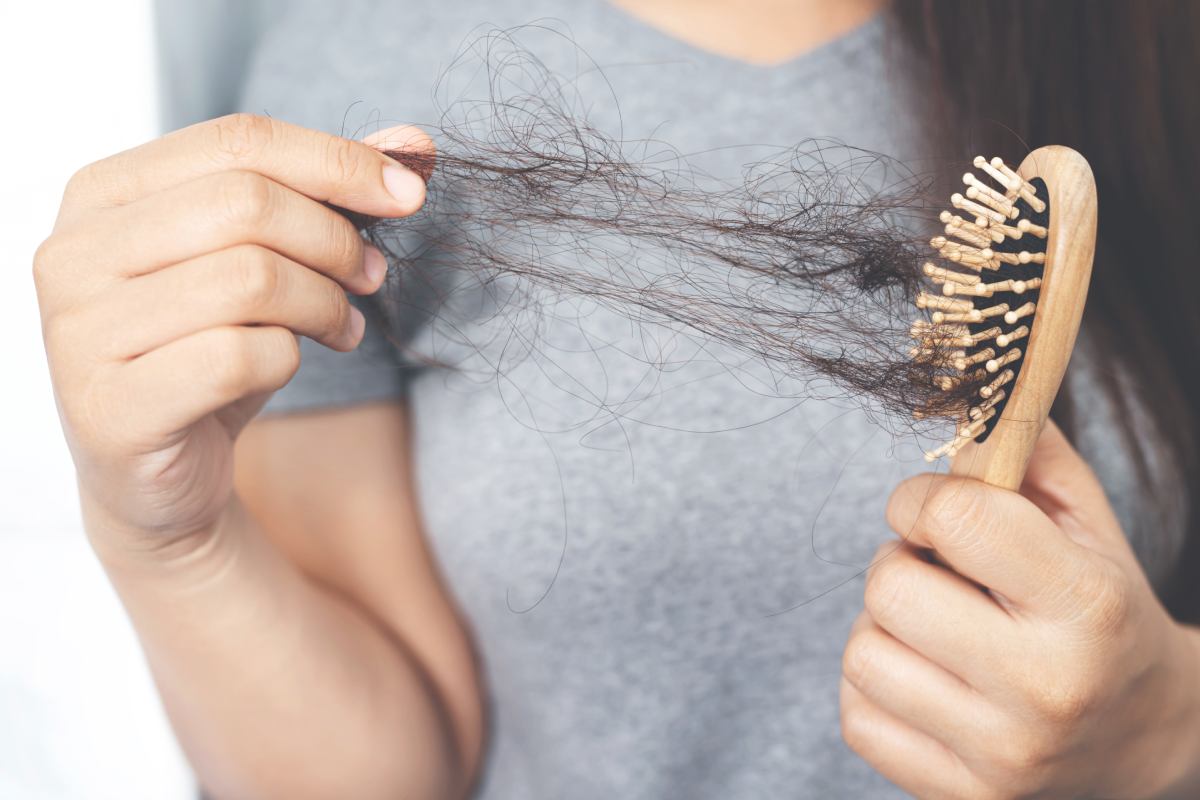When it comes to hair loss, most people tend to think of genetics as the primary culprit. While it’s true that hereditary factors play a significant role, there are a plethora of lesser-known causes that can contribute to hair loss. In this article, we will explore these often-overlooked triggers and shed light on the various ways you can prevent and treat hair loss.
The Role of Nutrition in Hair Health
A balanced and nutrient-rich diet is essential for maintaining healthy hair. Deficiencies in certain vitamins and minerals, such as iron, zinc, vitamin D, and biotin, can lead to hair loss. Additionally, consuming too much vitamin A or following a restrictive diet can also negatively impact hair growth. Ensuring that you consume a well-rounded, diverse diet can help prevent hair loss caused by nutritional deficiencies.
The Impact of Hormones on Hair Loss
Hormonal imbalances can be a significant contributor to hair loss, particularly in women. Conditions such as polycystic ovary syndrome (PCOS) and thyroid disorders can cause hormonal fluctuations that disrupt the hair growth cycle. In men, an excess of dihydrotestosterone (DHT) can lead to male pattern baldness. Consulting with a healthcare professional can help identify hormonal imbalances and provide treatment options to restore hair growth.
Stress-Related Hair Loss: The Mind-Body Connection
Stress is an often-underestimated cause of hair loss. Both physical and emotional stress can disrupt the hair growth cycle, leading to conditions such as telogen effluvium, which causes hair to enter the shedding phase prematurely. Incorporating stress-management techniques, such as mindfulness, yoga, and deep breathing exercises, can help alleviate stress-induced hair loss.
Environmental Factors and Hair Loss
Exposure to environmental factors, such as pollution, harsh weather conditions, and chemicals found in hair care products, can damage the hair shaft and contribute to hair loss. Protecting your hair from these elements by wearing hats, using gentle hair care products, and avoiding excessive heat styling can help prevent environmental-related hair loss.
Medications and Hair Loss: A Surprising Side Effect
Certain medications, including antidepressants, blood thinners, and birth control pills, can have hair loss as a side effect. If you suspect that a medication you are taking is causing hair loss, consult with your healthcare provider to discuss alternative treatment options.
The Role of Inflammation in Hair Loss
Inflammatory conditions, such as alopecia areata and scalp infections, can cause hair loss by damaging hair follicles. Ensuring that you maintain a healthy scalp by practicing good hygiene and using gentle hair care products can help reduce inflammation and prevent hair loss.
Lifestyle Factors and Hair Loss
A sedentary lifestyle and poor sleep habits can contribute to hair loss by affecting hormone levels and overall health. Engaging in regular physical activity, practicing good sleep hygiene, and avoiding tobacco and excessive alcohol consumption can help promote a healthy hair growth cycle.
As you can see, there are several lesser-known factors that can contribute to hair loss. By addressing these underlying causes and implementing preventative measures, you can take charge of your hair health and reduce the risk of hair loss. If you’re interested in learning more about natural ways to combat hair loss and promote regrowth, click here to read an insightful blog post.
In conclusion, while genetics play a role in hair loss, it’s crucial to recognize and address the various other factors that can contribute to this issue. By being proactive and adopting a holistic approach to hair health, you can enjoy a full head of hair for years to come.
The Importance of Scalp Care in Preventing Hair Loss
Many people overlook the significance of maintaining a healthy scalp. A clean, well-nourished scalp provides the optimal environment for hair growth. Regularly exfoliating the scalp, using gentle shampoos and conditioners, and avoiding tight hairstyles that put strain on hair follicles can all help to prevent hair loss related to scalp health.
Immune System and Hair Loss
An overactive immune system can attack hair follicles, leading to hair loss. Conditions such as alopecia areata, lupus, and lichen planopilaris are examples of autoimmune disorders that can result in hair loss. By keeping your immune system in check through a healthy diet, regular exercise, and stress management, you can help minimize the risk of hair loss due to immune-related issues.
The Connection Between Gut Health and Hair Loss
Emerging research has revealed a connection between gut health and hair loss. An imbalance of gut bacteria, known as dysbiosis, can lead to inflammation throughout the body, which can negatively impact hair growth. Incorporating probiotic-rich foods, such as yogurt, kefir, and fermented vegetables, into your diet can help maintain a healthy gut microbiome and support hair growth.
The Role of Hair Care Practices in Hair Loss Prevention
Adopting healthy hair care practices can make a significant difference in preventing hair loss. Avoiding excessive heat styling, limiting the use of chemical treatments, and being gentle when detangling your hair can help prevent damage and breakage. Regularly trimming the ends of your hair can also help maintain its overall health and minimize the risk of hair loss.
Hair Loss and Mental Health: The Psychological Impact
Hair loss can take a toll on your mental well-being, leading to feelings of embarrassment, depression, and low self-esteem. Acknowledging the psychological impact of hair loss and seeking support from friends, family, or mental health professionals can help you cope with the emotional challenges associated with hair loss. Embracing your changing appearance and focusing on self-care can be empowering and beneficial for your overall well-being.
In conclusion, understanding the lesser-known causes of hair loss and taking a holistic approach to hair health can help you prevent and manage hair loss more effectively. By addressing the root causes, adopting a healthy lifestyle, and nurturing your mental well-being, you can enjoy a full head of hair and improved self-confidence. Remember, if you’re looking for natural ways to combat hair loss and promote regrowth.

